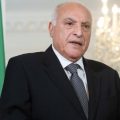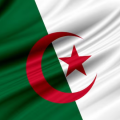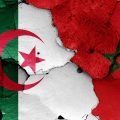Algeria schedules September election: military-backed president likely seeks re-election.
Algeria, a country wealthy in oil assets found in North Africa, as of late reported the planning of its another decision for September 7, giving occupant President Abdelmajid Tebboune with an extended period of over five months for potential campaigning ought to select to seek after a moment term. This choice, uncovered by Tebboune’s office after meetings with different administrative bodies, arrives in the midst of a complex and energetic political scene. Theory proliferates with respect to Tebboune eagerly, as the country energetically stands by his official announcement of candidacy. In this way distant, the political field remains moderately calm, with Zoubida Assoul, speaking to the Union for Change and Progress, rising as a contender. The nonappearance of extra candidates underscores the instability and interest encompassing the prospective constituent handle, clearing out numerous spectators inquisitive about almost the course Algeria’s political future may take.
Challenger Profile and Inspirations
Zoubida Assoul, the sole challenger to President Tebboune’s potential reelection bid, brings a richness of encounter and an immovable commitment to activism and lawful promotion. A profoundly respected 67-year-old legal counselor, Assoul is eminent for her principled defense of political detainees and her frank study of administrative shameful acts. Her choice to enter the political fray and challenge the up and coming race stems from a profoundly held conviction within the control of a transformative change. Having formally announced her candidacy three weeks earlier, Assoul’s offered resounds with citizens embittered by the status quo and longing for substantive change inside Algerian legislative issues. As she sets out on her appointive campaign, Assoul’s message of trust and recharging resounds among fragments of the populace frustrated by the challenges confronting their country.
Political Setting and Discretionary Point of reference
The approaching September decision speaks to an urgent minute in Algerian legislative issues, checking the primary vote since President Tebboune expected office in 2019. His climb was taken after a period of tumult and change characterized by far reaching challenges and the ensuing renunciation of his forerunner. In spite of introductory guarantees to lock in with demonstrators and combat debasement, Tebboune’s residency has been checked by continuous pressures and a fixing hold on contradict. Activists proceed to voice grievances over seen government suppression, highlighting the persevering undercurrent of discontent inside Algerian society. The upcoming election, in this manner, holds critical suggestions for the long run direction of the country, with the potential to either cement existing control structures or usher in an unused period of administration characterized by straightforwardness and responsibility.
Financial Challenges and Appointive Elements
Past the realm of legislative issues, Algeria hooks with a number of financial challenges that shape the constituent scene. Issues such as swelling, unemployment, and nourishment deficiencies endure, underscoring the critical requirement for successful administration and approach change. In addition, the nation’s overwhelming dependence on oil and gas incomes uncovered it to the vagaries of the worldwide economy, as illustrated by later instability stemming from geopolitical occasions such as the strife in Ukraine.
Keep Reading
As citizens plan to cast their ballots in September, they do so against a backdrop of vulnerability and dread, intensely mindful of the stakes included. The result of the decision will not decide the composition of Algeria’s administration but moreover shape the direction of its economy and the welfare of its citizens for a long time to come.
Algeria’s upcoming decision speaks to a vital minute within the nation’s history, advertising both challenges and openings for advance and alter. As political on-screen characters compete for control and citizens contemplate their choices, the result of the race will resound distant past the limits of the vote box, forming the predetermination of Algeria and its individuals within a long time ahead.








